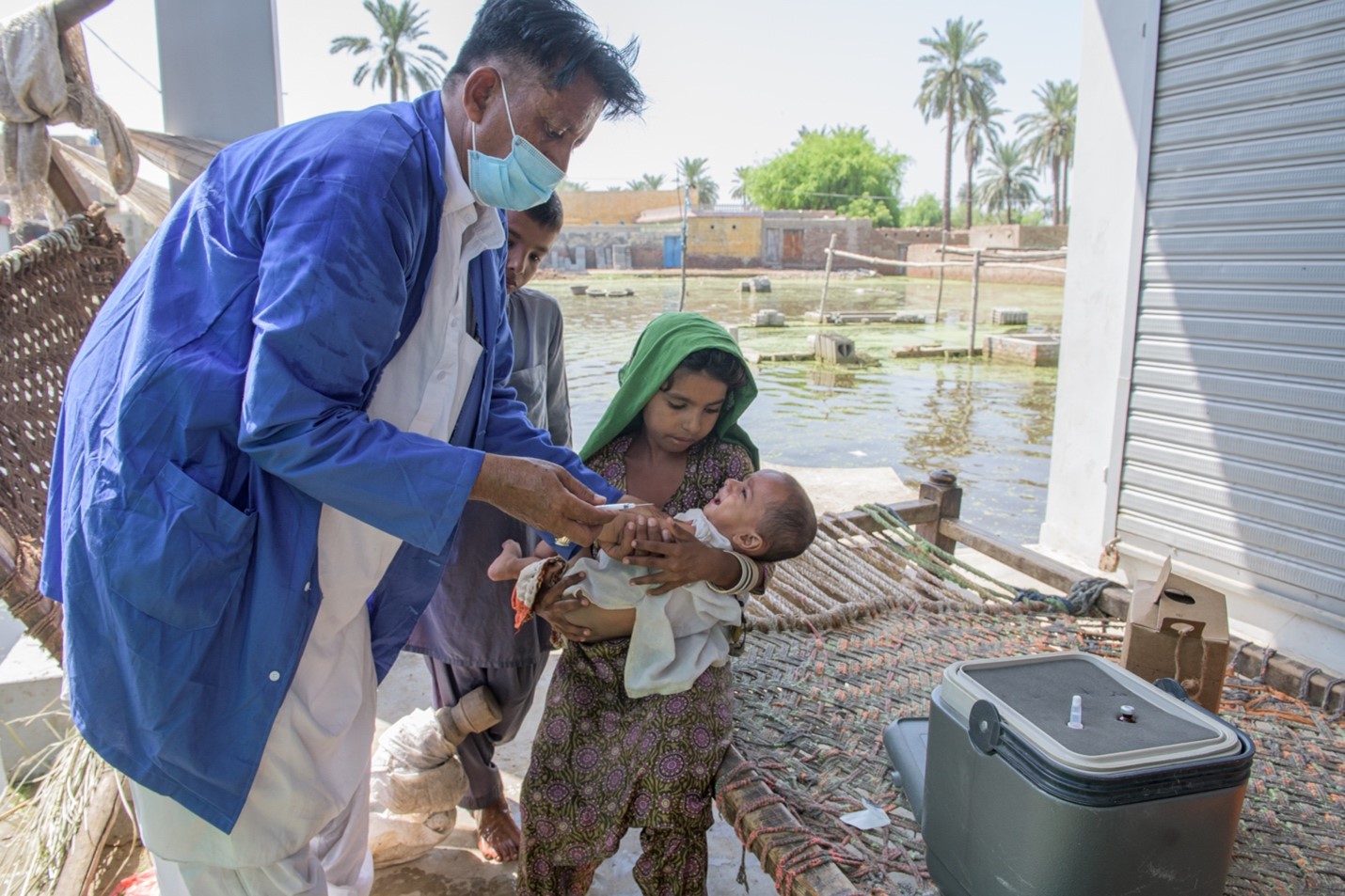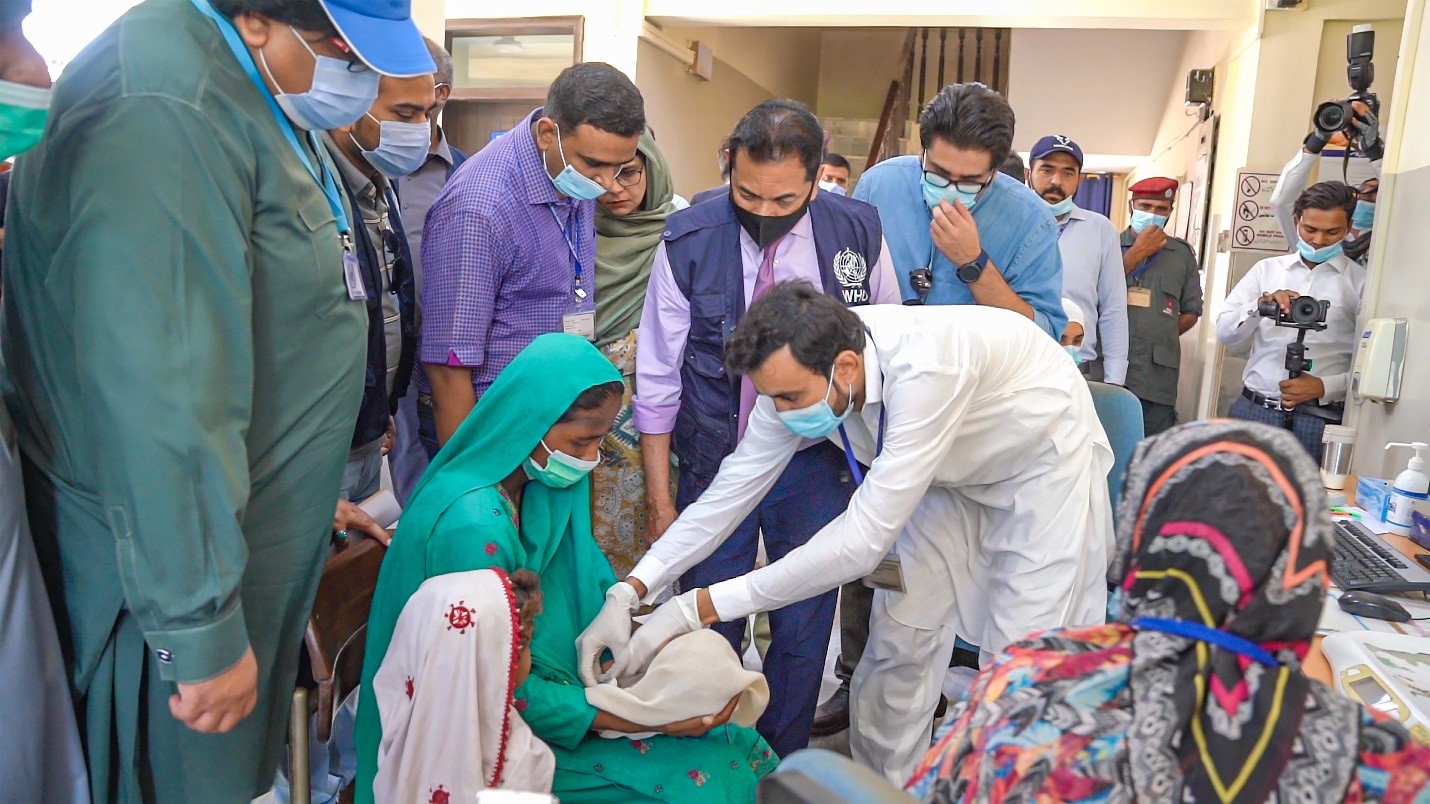Nizam ud din is one of the vaccinators committed to providing medical care on the humanitarian frontlines.
Every day, he teams up/sets out with a team assistant to reach out to unvaccinated children in the villages of Gambat, District Khairpur, located about 70 kilometres from the main city. However, getting to the remote, flooded village is a challenging task.
Nizam and his colleagues must find a suitable way to get to children and their families who have either relocated or found shelter at the relief camps.

In addition to reaching internally displaced persons (IDPs), Nizam is part of the mobile health services team who provide basic health and routine immunization services to displaced populations. The flood damaged health infrastructures have halted the delivery of lifesaving services.
"When we set out in the morning to reach out to unvaccinated children." A large number of families are on the move and have taken refuge in IDP camps. We're unsure whether our transportation will be adequate to get us to the destination because most roads are either damaged or submerged. We prepare and wade through to the target households. Upon reaching the villages, we validate our existing information and, if required, update our data sheets. Usually, we manage to vaccinate 20 children every day. Children of age more than 6 months receive the measles-rubella (MR) vaccine besides nutritional assessment," Nizam says.
"This vaccine will protect your children from infections and viruses," Nizam tells the parents who come to the mobile health camp. "If your child catches a virus and becomes sick, the whole family will suffer because you have to take care of the child instead of reclaiming your flooded home or resuming your livelihood."

WHO supports integrating mobile routine immunization services with other health care services, including nutrition and medical supplies. In Sindh, WHO supports the government’s vaccinators to vaccinate children in internally displaced populations with the MR, oral poliovirus vaccines, supplementing routine immunization.
During the visit to the IDP camp, Dr Palitha Mahipala, WHO Representative in Pakistan, emphasized the need for integrated health services with routine immunization. "The children are vulnerable in the IDP camps and more susceptible to vaccine-preventable diseases. Health centres have been flooded, their supplies damaged, and people have moved away from home, which makes it harder for them to access their normal health services," Dr Palitha added.
"The health camps are critical when millions, particularly children, are extremely vulnerable to outbreaks," Dr Palitha highlighted. With children in Sindh living on the brink of multiple diseases and widespread malnutrition, they face an extremely high risk of disease. Moreover, in Sindh, over 10% of health facilities in 15 districts are fully or partially damaged, and the health system is on the verge of collapse.
With the health system hanging in the balance, such campaigns are helpful in providing initial relief but are not sustainable. These interventions alone cannot address the medical needs of the entire population once the flood water retreat. A structured building back better approach to health systems recovery is needed to ensure that the rebuilt public system is stronger, safer, agile and more resilient to disasters.


